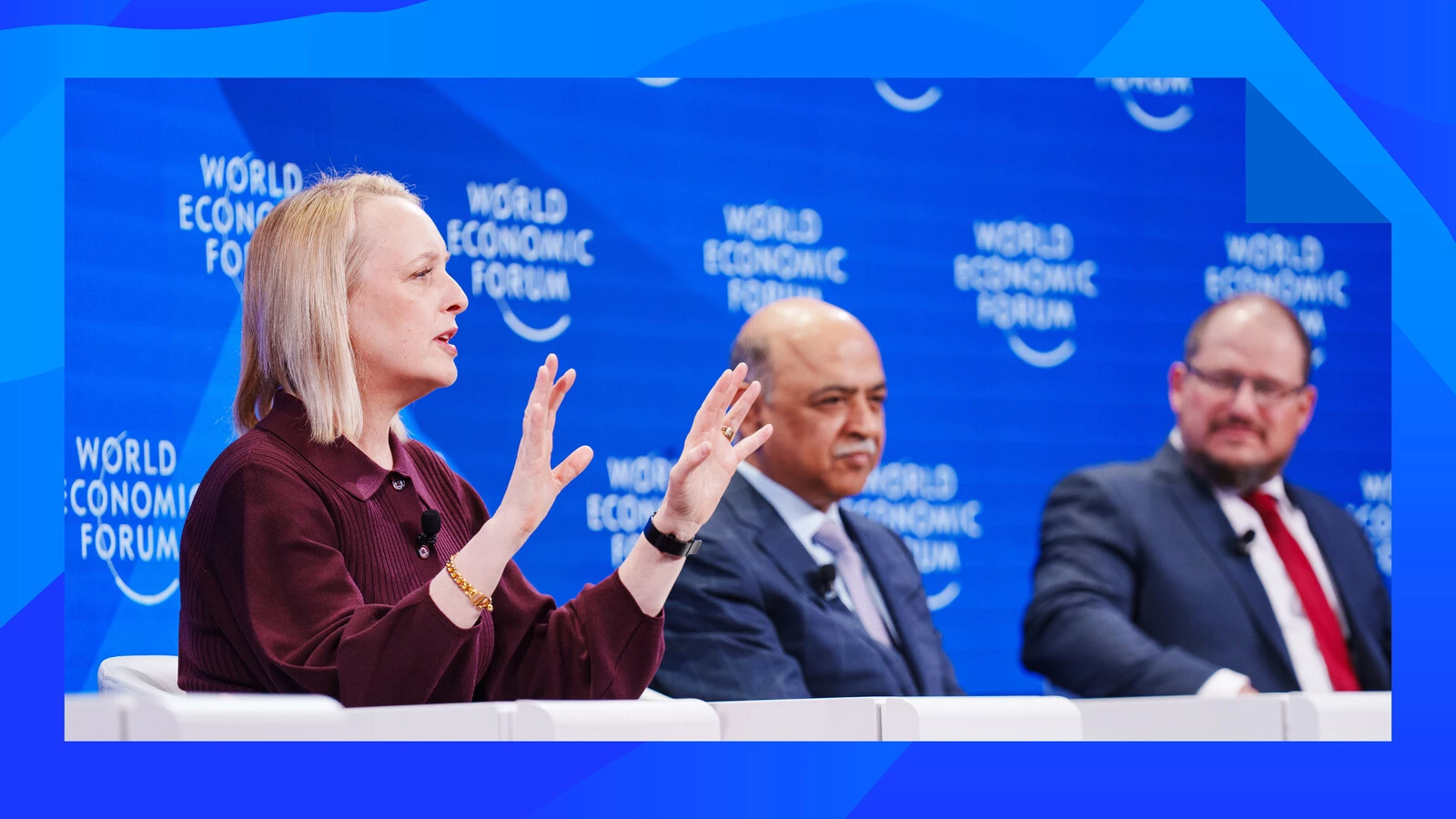- Artificial Intelligence is as significant for humanity as the invention of the steam engine, according to experts.
- All our jobs will be affected – and there are critical skills we will need.
- The Annual Meeting of the World Economic Forum, takes place from 15–19 January in Davos, Switzerland.
There is no longer much doubt about the scale of the impact that Artificial Intelligence (AI) will have on our societies and economies. From the creation of new art to the bolstering of cyber security, the technology will soon be ubiquitous — and the moment is historic.
AI has been compared to the printing press or the steam engine — two technologies that brought about once-in-a-generation advances and fundamental changes in how we operate.
Speakers on panel at the World Economic Forum’s Annual Meeting unanimously agreed with the premise of the session: Generative AI: Steam Engine of the Fourth Industrial Revolution.
And they had words of advice for all of us on surviving and thriving in the new age of AI:
“If you embrace Artificial Intelligence, you will be complete. If you do not and you’re late, you’ll be finished. And if you reject it altogether, you will be completely finished,” said Omar Sultan Al Olama, United Arab Emirates Minister of State for Artificial Intelligence.
IBM Chairman and CEO Arvind Krishna said generative AI’s impact on jobs would be huge.
“It is the first technology that goes after the white collar work or what I will call the lower half of cognitive work … It doesn’t matter whether you’re a physicist, mathematician, a computer scientist, a doctor, a writer,” he said.
So what will be the one key skill we all will need to thrive in the age of AI?
“If the lower half of cognitive work gets taken over by genAI, it implies that you’ve got to learn critical thinking. That means critical thinking, regardless of which domain you’re in, becomes the skill that is far, far more needed,” Krishna said.
Accenture Chair and CEO Julie Sweet said the ability to keep learning was key, and that was something Accenture demanded of all its employees, even at the interview stage:
“We ask one question to every person, regardless of whether you’re a coder or you’re a strategist or you’re a doctor or you’re working in HR. We ask one interview question to everyone. We say: what have you learned in the last six months?
“We don’t care if it’s how to bake a cake, but we have to have people who like to learn. And that question is incredibly insightful, you have to have people who want to learn and build a learning culture,” she said.
The World Economic Forum’s most recent Future of Jobs report said: “Analytical thinking and creative thinking remain the most important skills for workers … Analytical thinking is considered a core skill by more companies than any other skill.
Continuous learning
All the panelists in Davos stressed the need to adapt education to the coming changes.
“We actually deployed AI education within our schooling,” the UAE’s Omar Sultan Al Olama said.
“So from grade five onwards, people learn how to code. From grade nine onwards, kids in schools actually learn what artificial intelligence is, what are the ethics of it, and they also understand, whatever their career path is going to be, how AI is going to affect it.”
Beyond school, we need to keep learning, said IBM’s Krishna.
“Continuous learning, I think, is a hallmark,” he said.
“A statistic: The half-life of skills used to be 30 years. It’s now seven years. So if you think about that, that means that an average career, you’re going to change five times your overall skills.”
Accenture’s Sweet told the Davos audience: “AI will create a lot of new jobs, but you won’t be able to take the current people and put them in the jobs unless you partner together — governments and companies — on reskilling.”
Accenture has already prioritized a minimum level of digital literacy across the board — their staff must understand concepts like cloud technology, for example, at a minimum — giving the company an advantage when it comes to building an AI-ready workforce.
It’s not just businesses that can bring their people along in the AI revolution. For Al Olama, “the only constant is change — we need to build a populace that is able to adapt to change.”
Full session:
Watch the full Generative AI: Steam Engine of the Fourth Industrial Revolution? session here:
https://cdn.jwplayer.com/players/V2GkQPuV-ncRE1zO6.html
Host:
Zanny Minton Beddoes, Editor-in-Chief, The Economist.
Panelists:
Omar Sultan Al Olama, Minister of State for Artificial Intelligence, Digital Economy and Remote Work Applications, Office of the Prime Minister of the United Arab Emirates
Mike Rounds, Senator from South Dakota (R), United States Senate
Julie Sweet, CEO, Accenture
Cristiano Amon, CEO, President and Chief Executive Officer, Qualcomm Incorporated
Arvind Krishna, Chairman and Chief Executive Officer, IBM Corporation
By: Robin Pomeroy (Podcast Editor, World Economic Forum) and Chris Hamill-Stewart (Writer, Forum Agenda)
Originally published at: World Economic Forum

